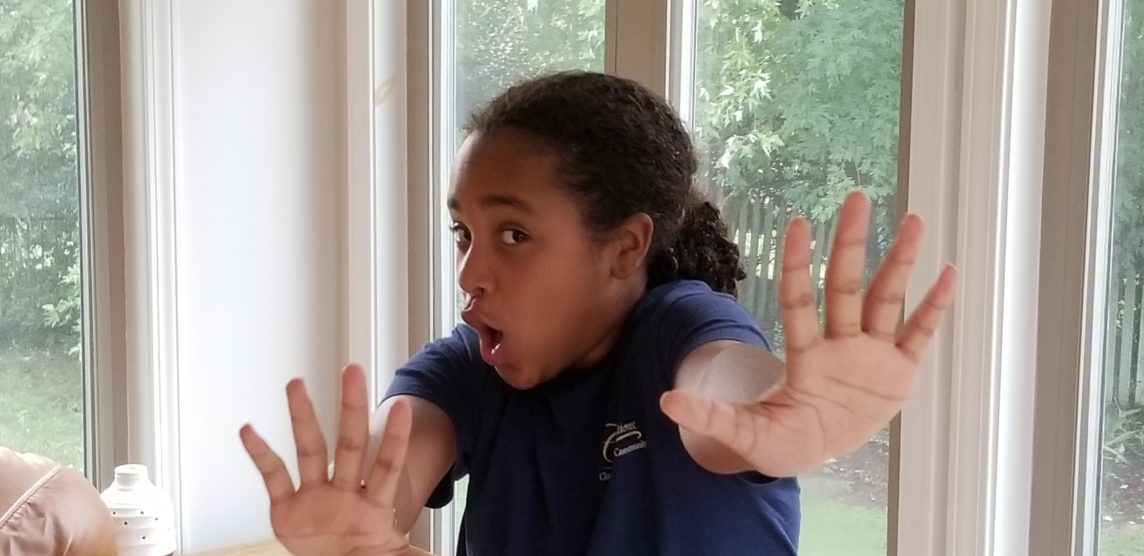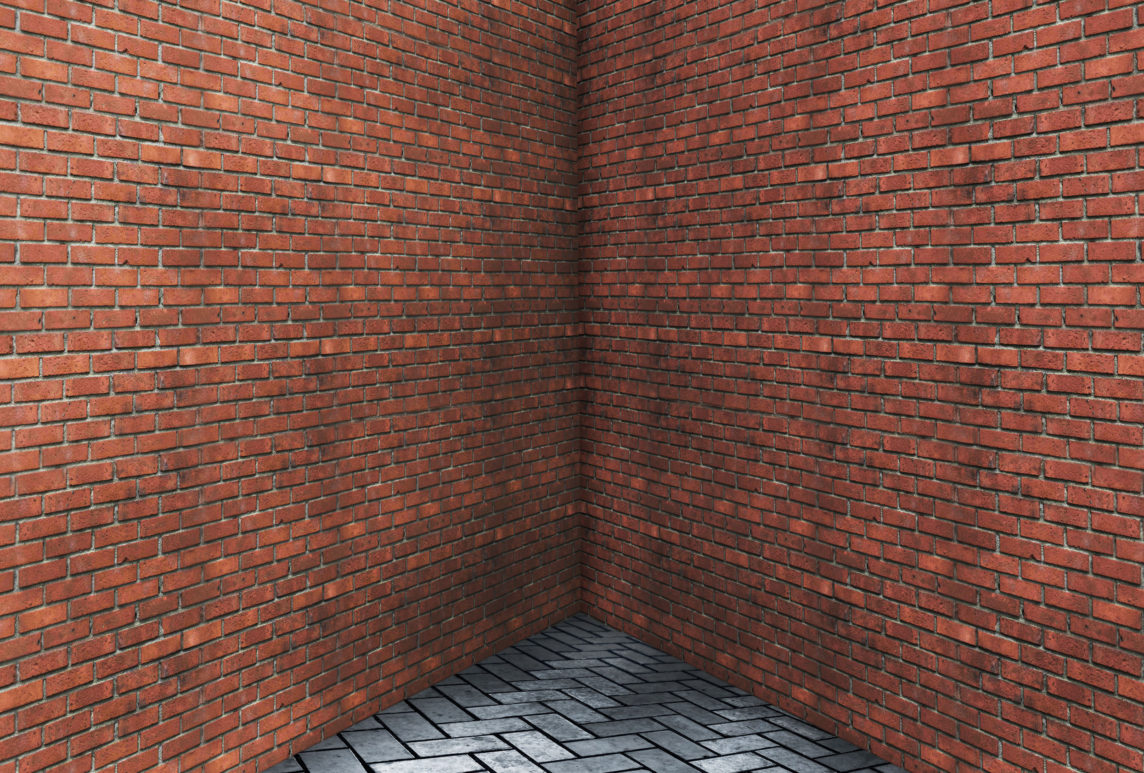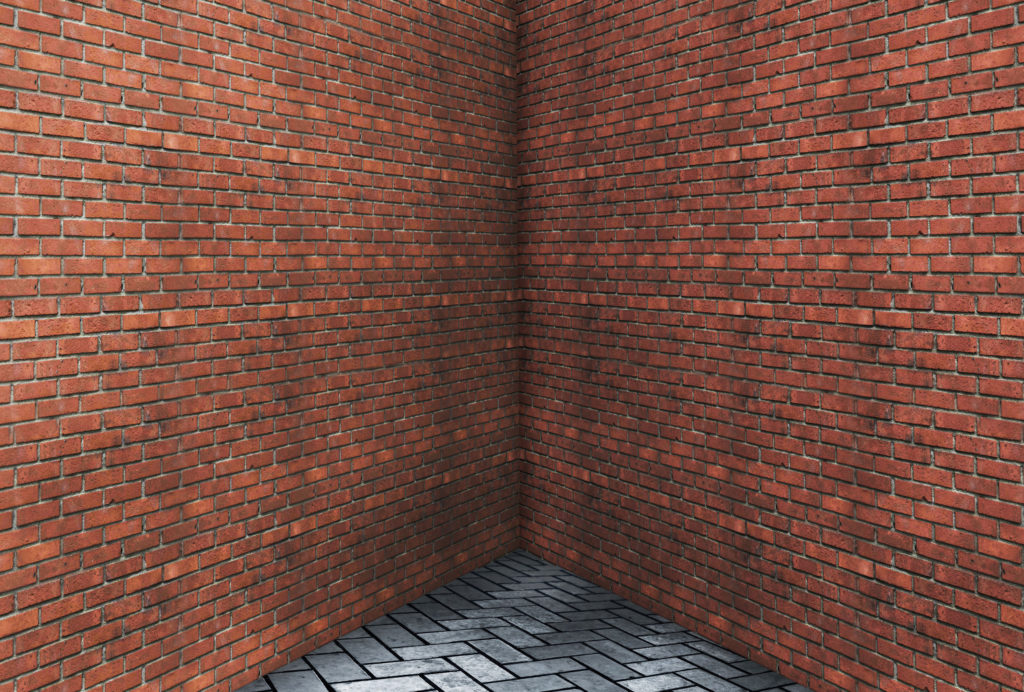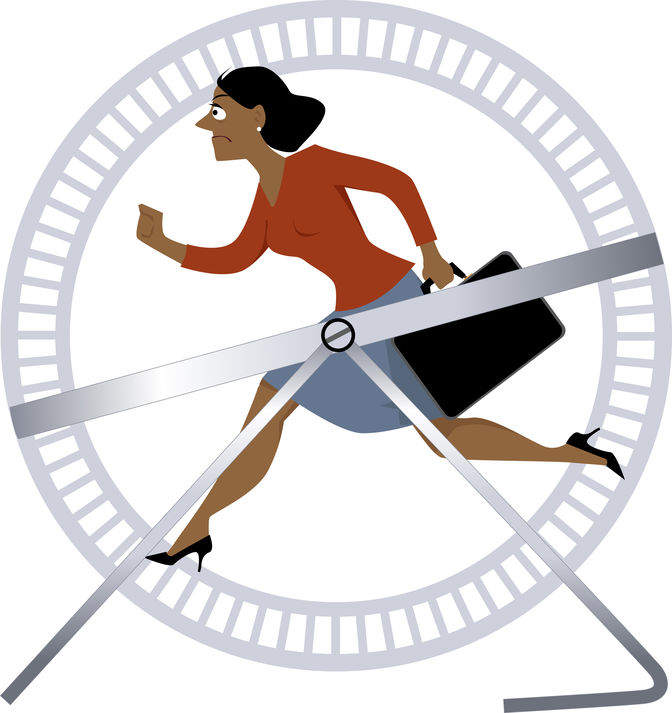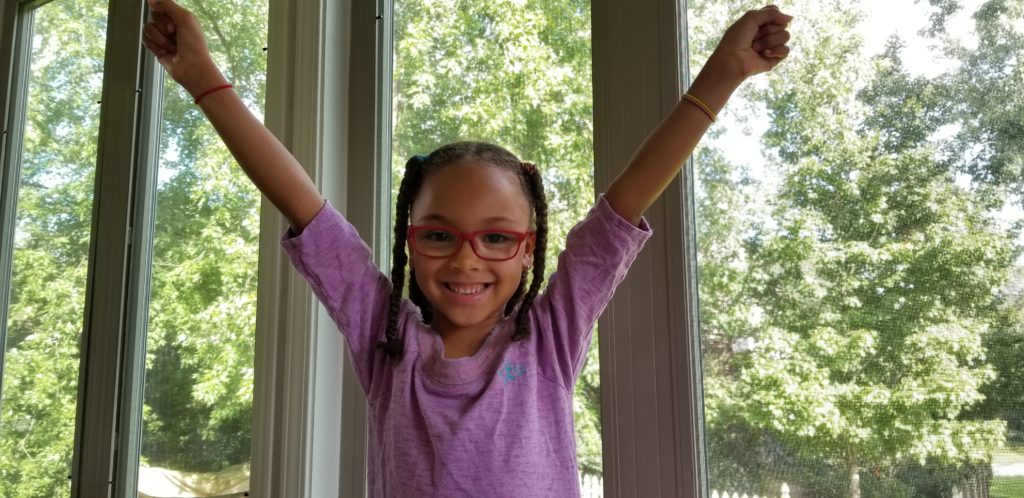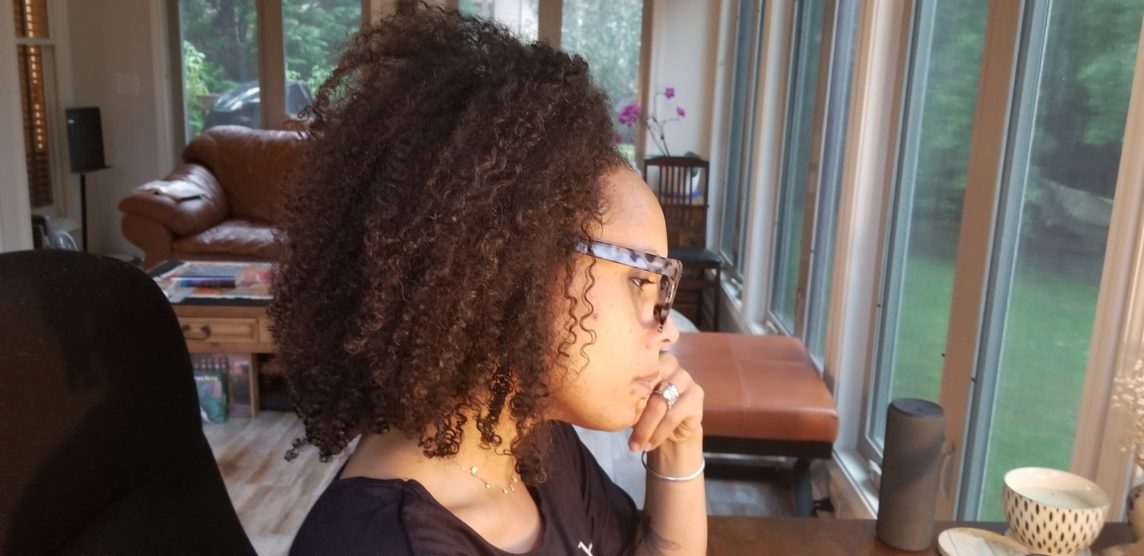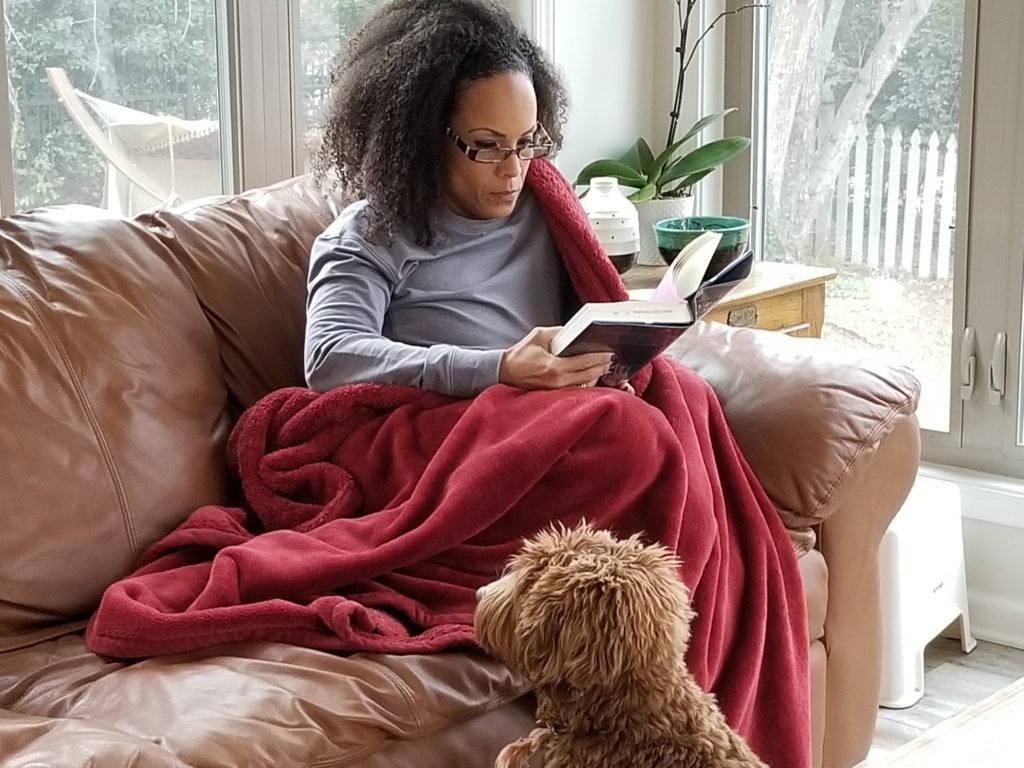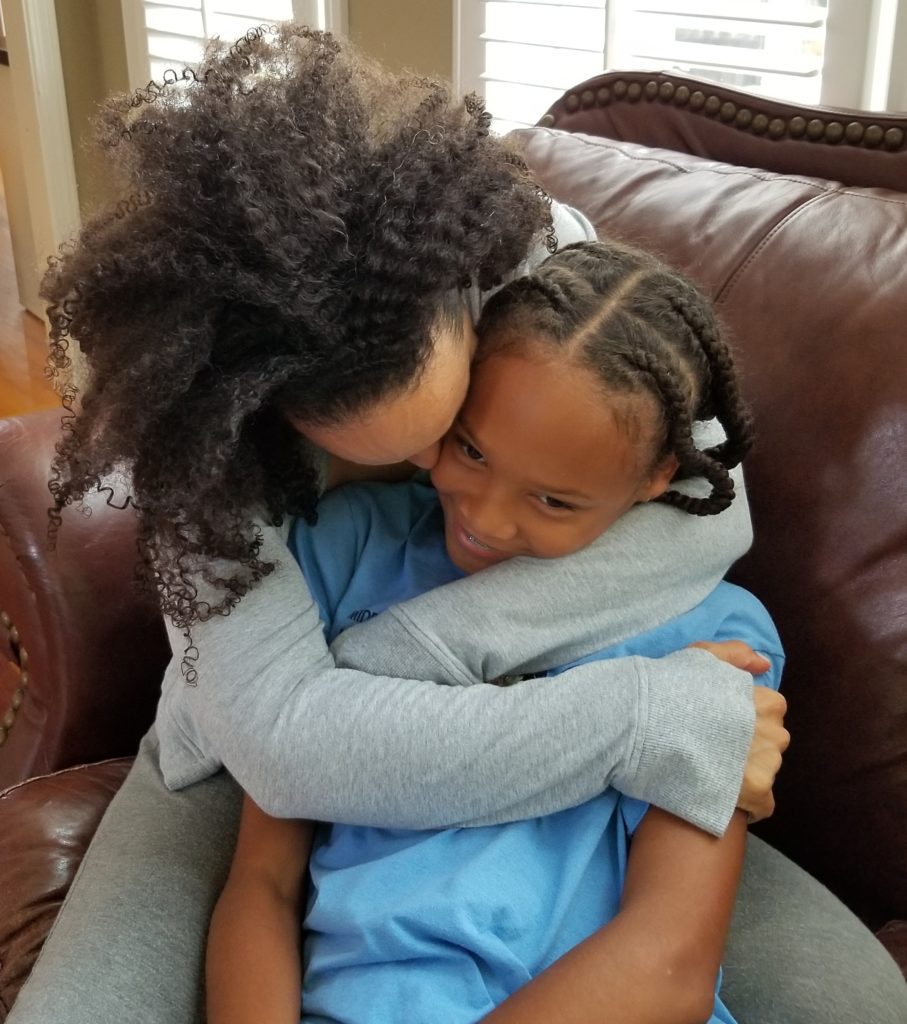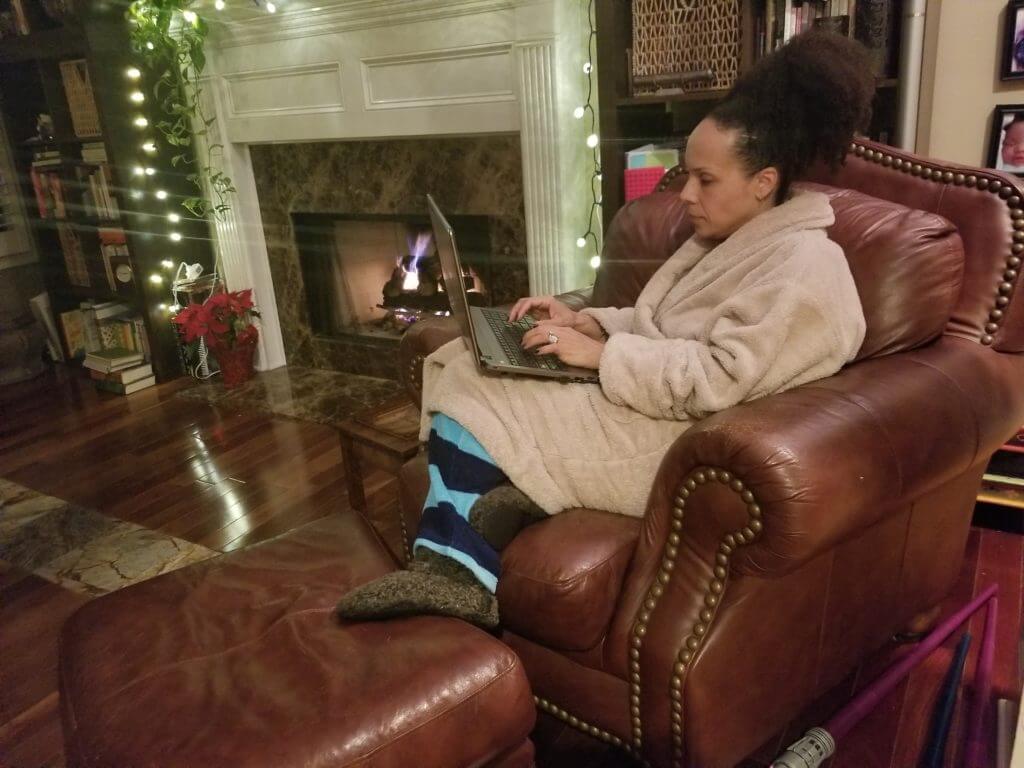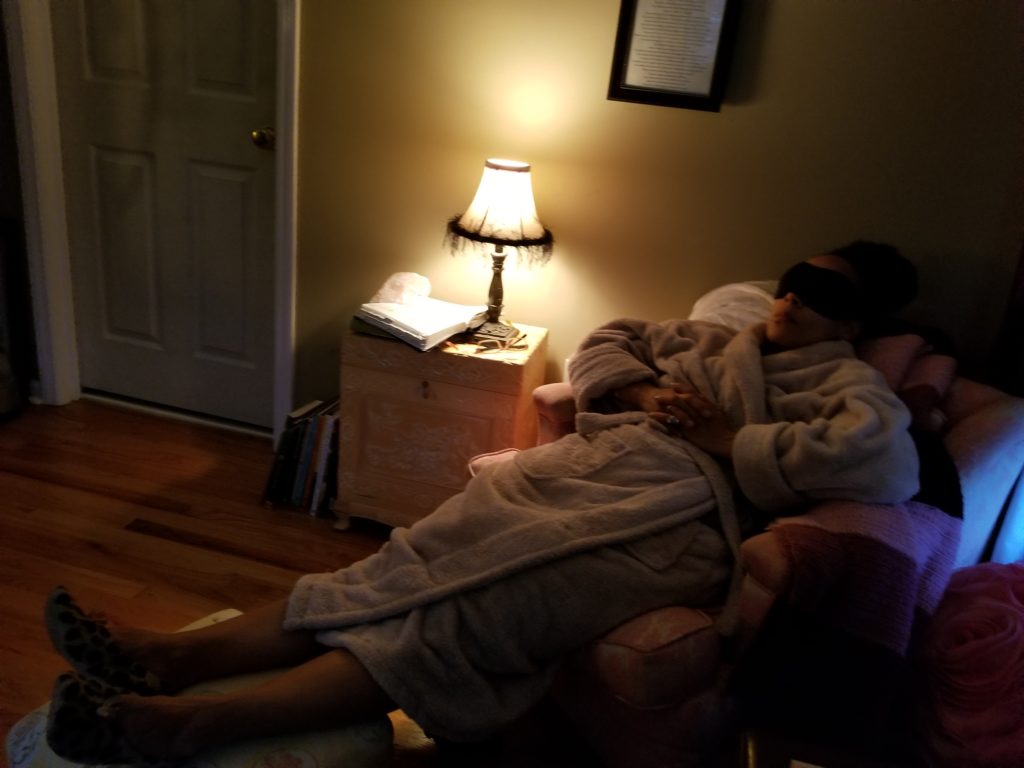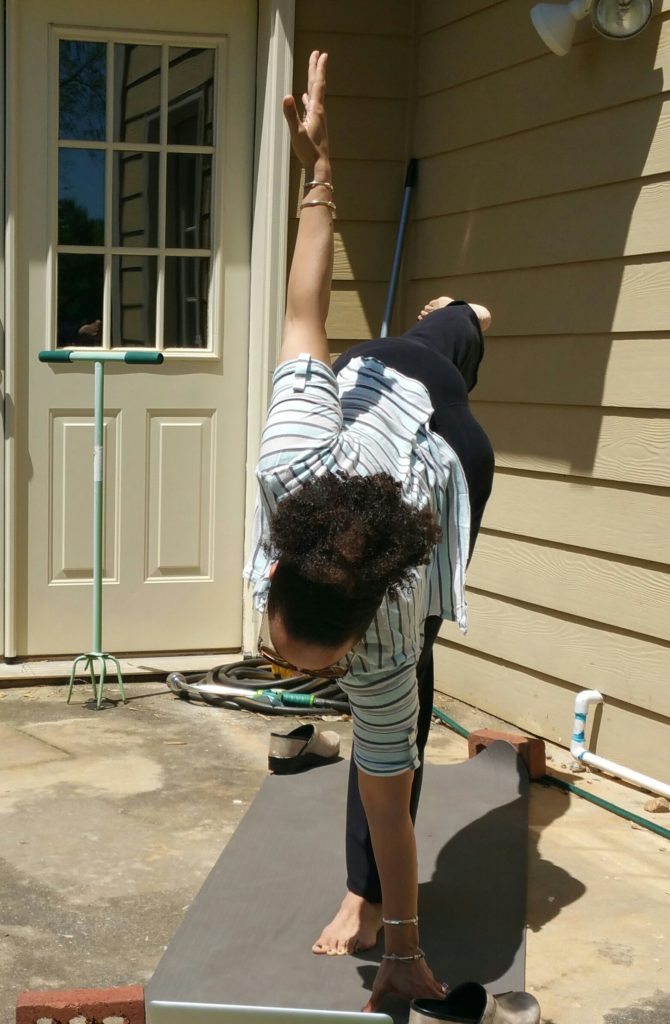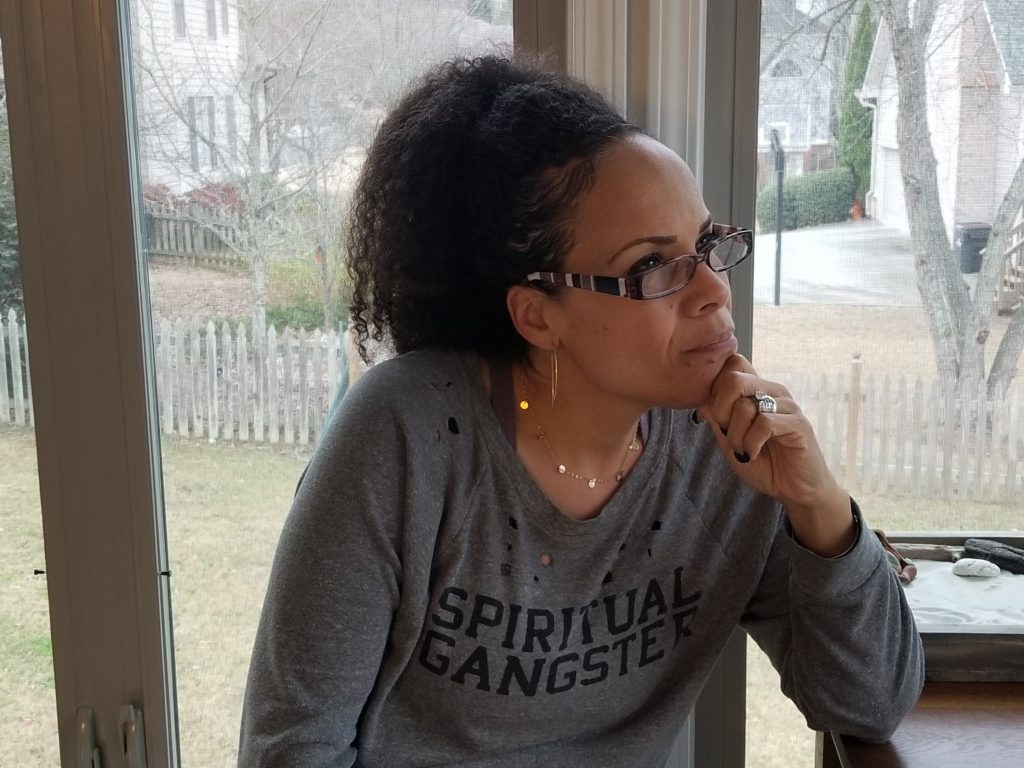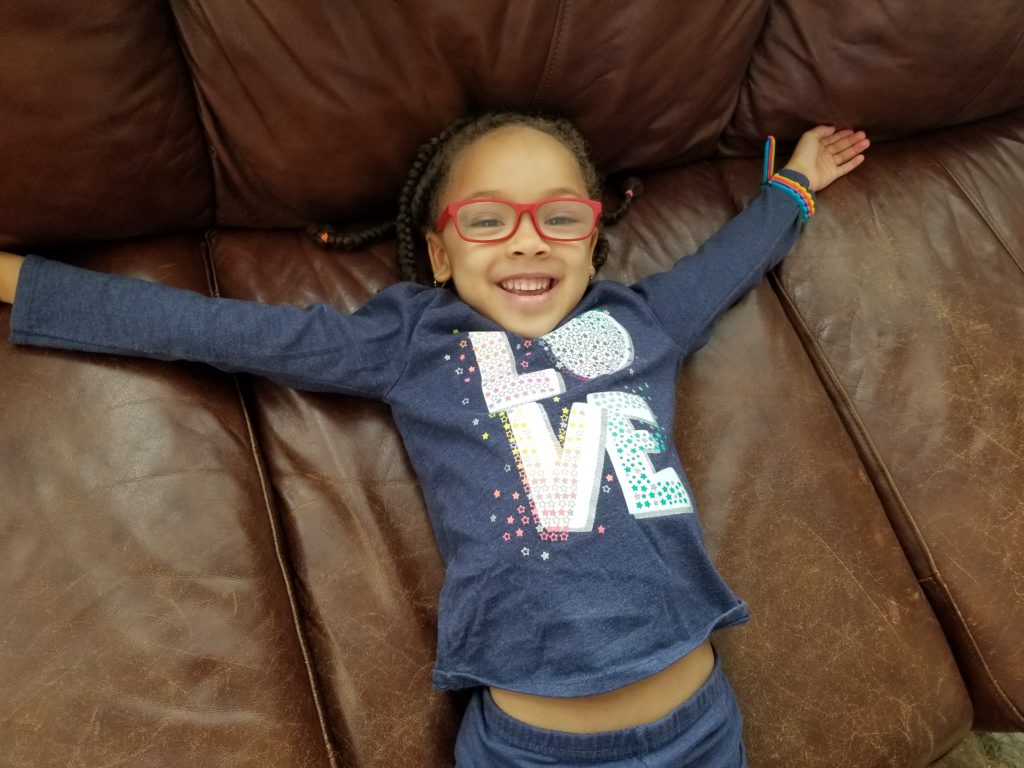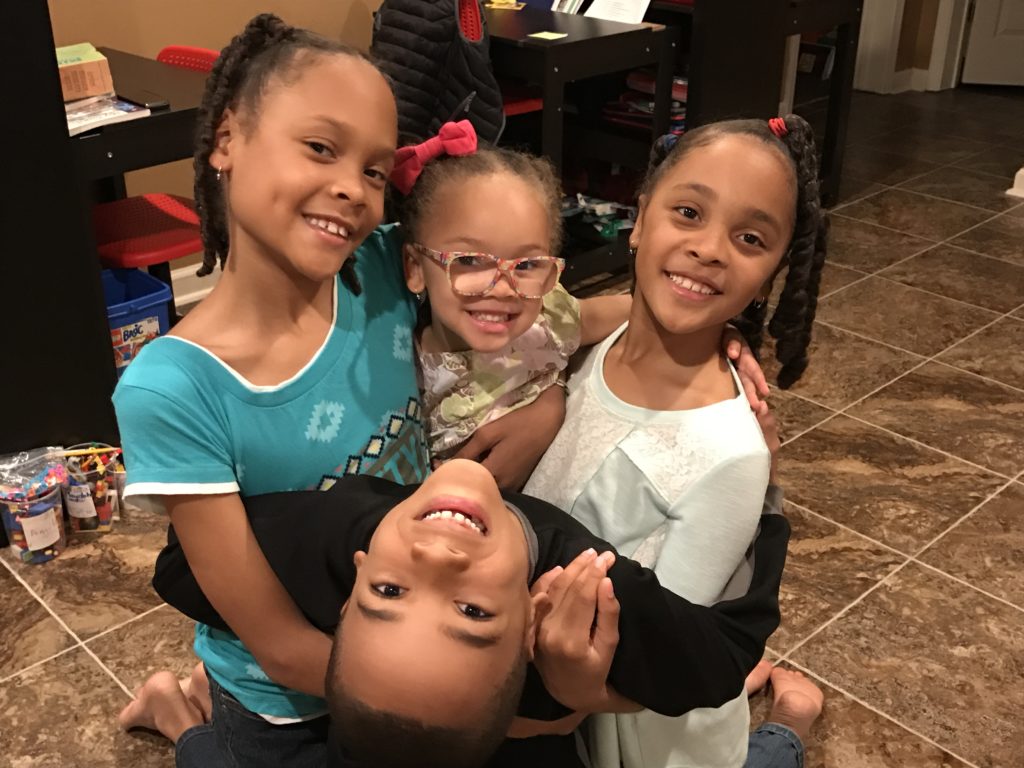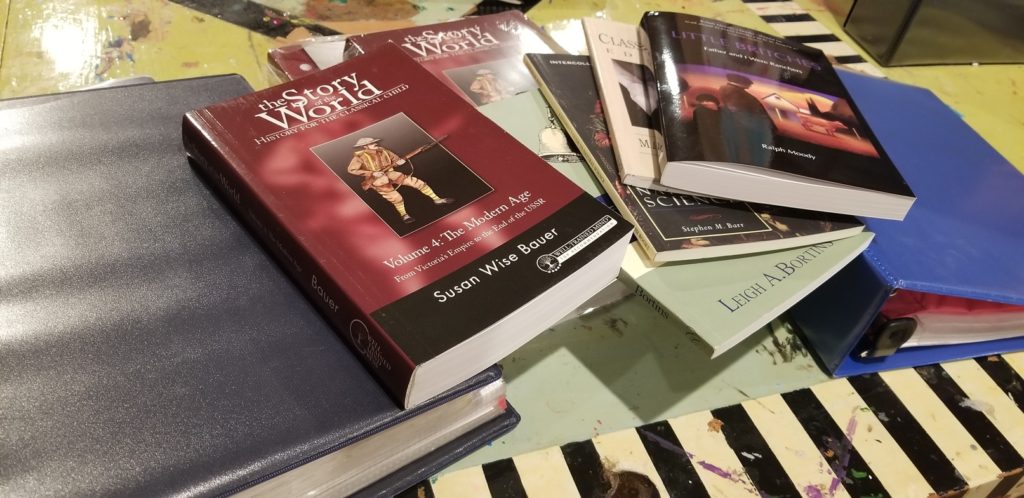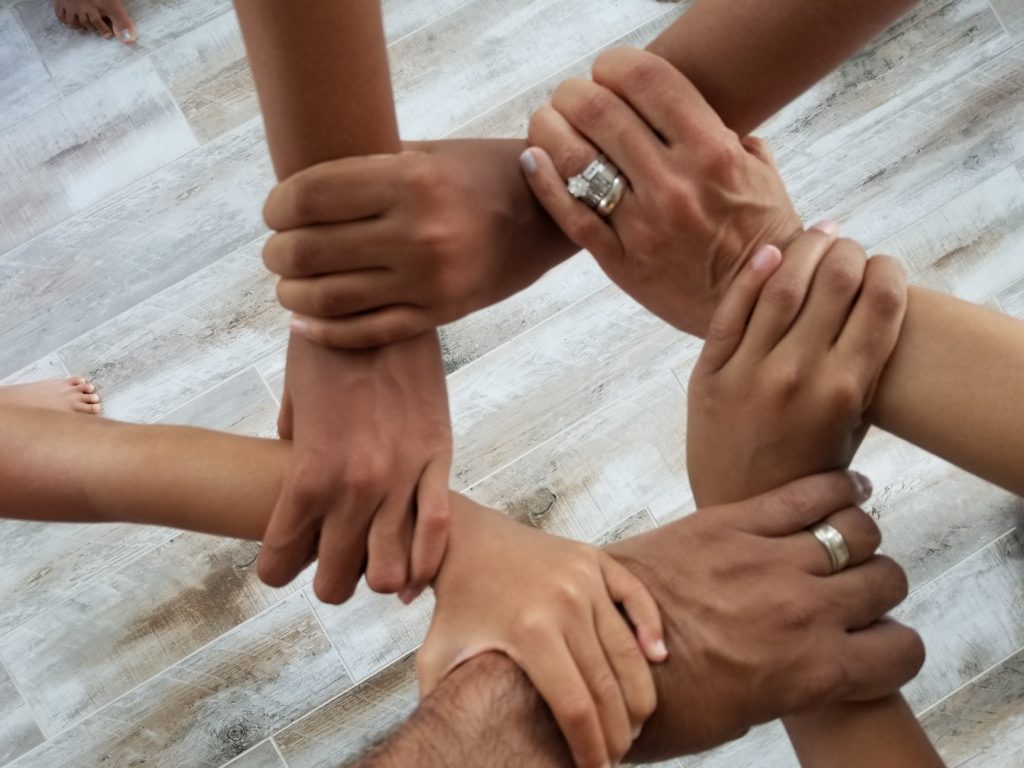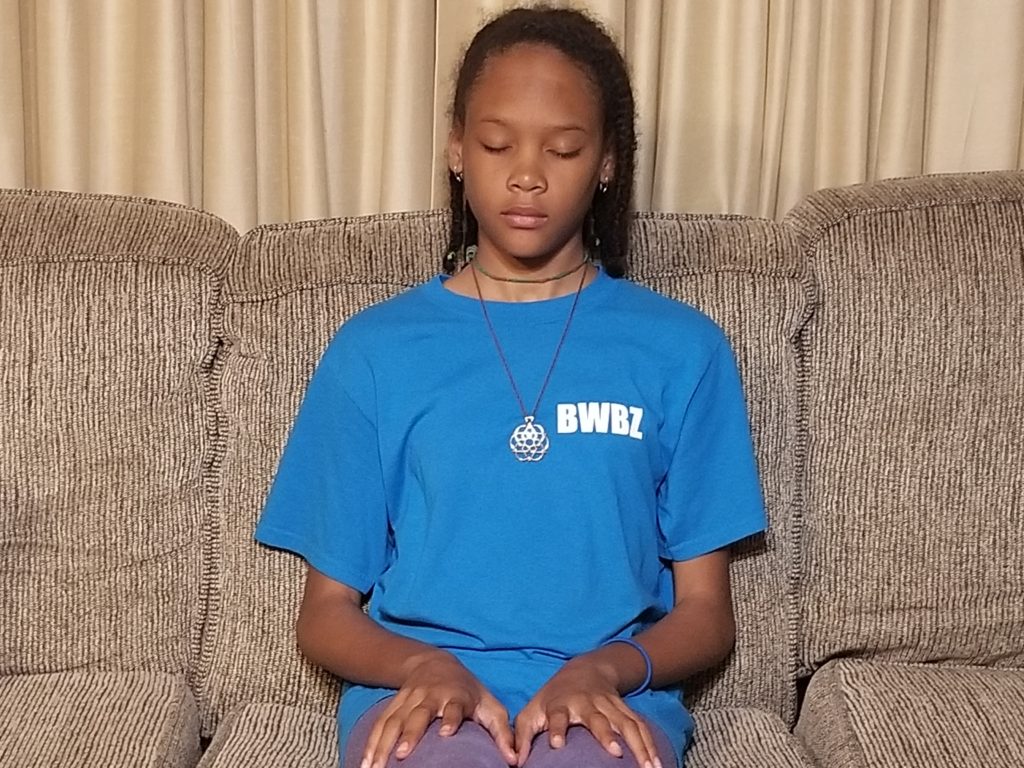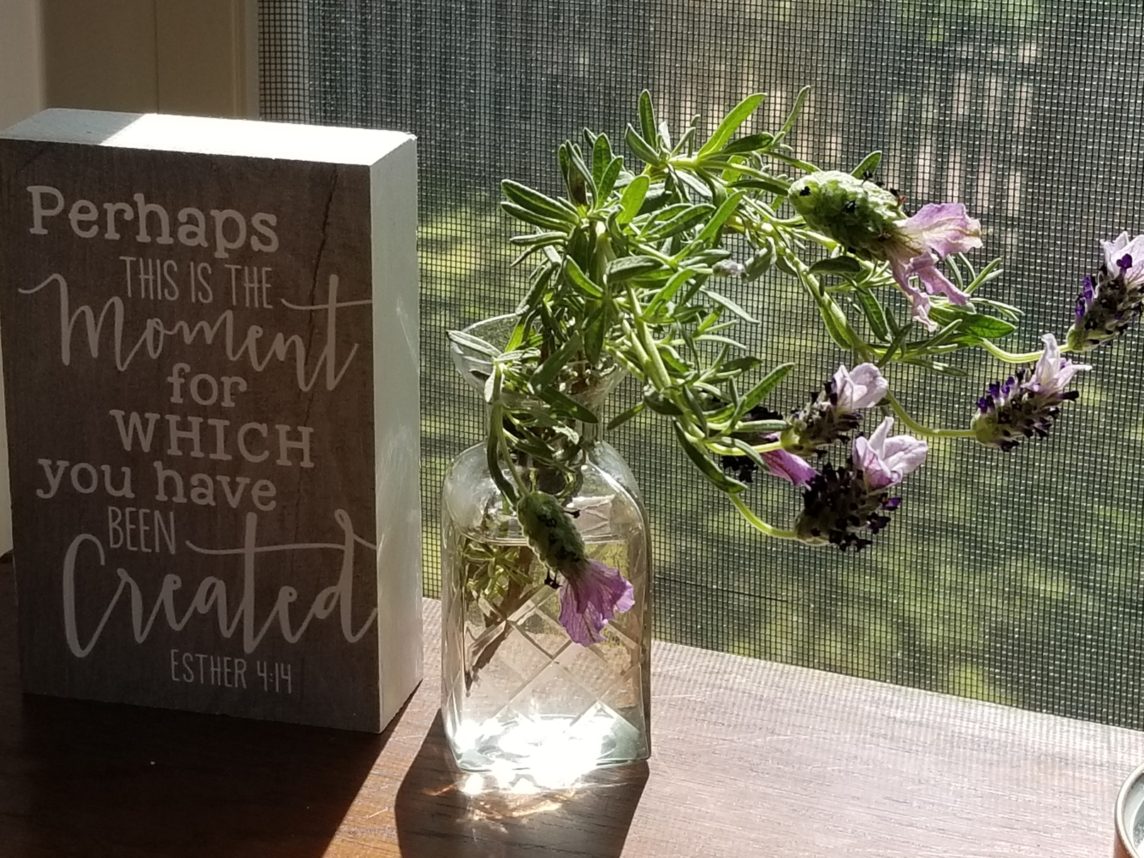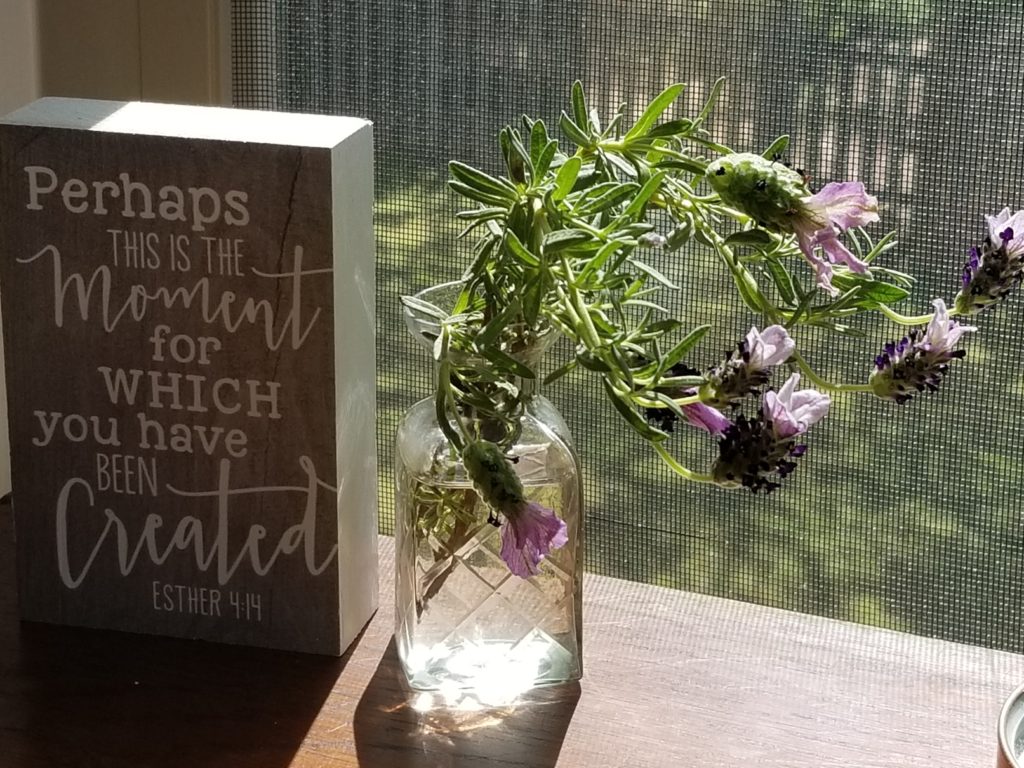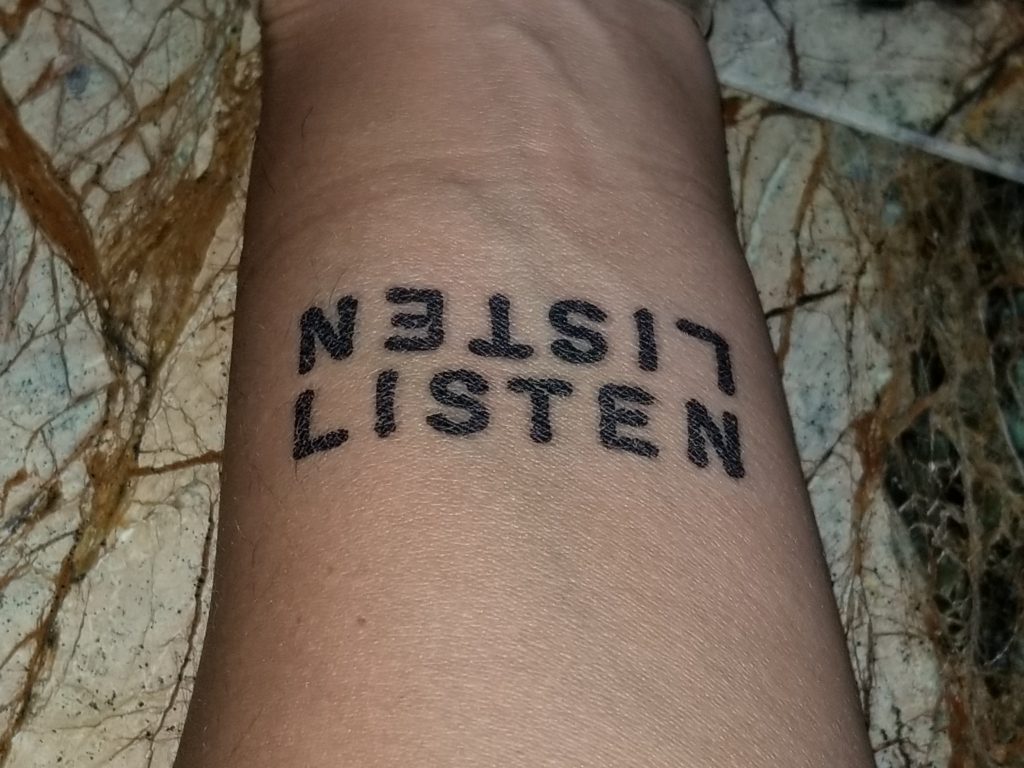You know, when I dreamt of being a mom, I had this whole vision for myself. I was going to be the mom who always listened to her kids, who taught them to think and understand, who took them to amazing places and showed them the wonder of the world. I was going to snuggle and hug and never be too busy to hear their needs. This mom wasn’t going to yell or lose her mind when the kids acted up. Nope, I was going to take things in stride and help them see the error of their ways. Then we would go forth, hand in hand to the next adventure.
Right.
I can hear you laughing.

The good news is that in some ways I am the mom I want to be. I trained myself when they were very young to listen to what they were saying and to respond to every coo and babble. Now, it’s hard to tune them out, and sometimes that’s a pain because they don’t need me to listen to every word, and there are four of them and they make lots of noise!. I do give lots of hugs (probably could give more), and I try to hear their needs and meet them when appropriate (there’s a lot of teaching about want vs. need these days). Where I definitely fall short is with losing my temper with them. I haven’t turned out to be that easy-going, laid back, go-with-the-flow mama. Not sure if that missing part is due to nature or nurture – I’m pretty sure it has a lot to do with my personality. I’m generally more intense and ride-or-die than chill. Yelling is something I’ve grown away from. Not that I don’t do it at all, but I’ve learned better ways to get my kids to get back on track. But you will probably get me when I say this: There are some things that they do that take me from zero to sixty in 2.5 seconds. Let talk about it…
My son is in middle school this year. He’s smart, organized, opinionated, talkative, energetic, thoughtful, and generally an incredible young man. I love him to pieces! We do yoga together every morning, he loves to talk with me about the world, and he hasn’t decided he’s to old for my hugs and kisses. But we had a few incidents in the past year with him taking things around the house without asking. Most often, it was chocolate. Specifically, my chocolate.

Some of my stash…
So yes, I’m a certified health and weight loss coach, but I have a love for dark chocolate. Mostly I eat sugar-free dark chocolate or small amounts of high-quality specialty dark chocolate, but on very rare occasions I want to have peanut M&Ms. I chalk it up to childhood memories of candy bowls full of peanut M&Ms in varied colors depending on the season (red and green for Christmas, red pink and white for Valentine’s, and multi for the normal days). Isn’t it funny how we have foods that bring us back to childhood? My husband brought home Krispy Kreme doughnuts the other day (no, I don’t know what possessed him and no, they’re not vegan). I took a bite of one of a classic glazed he was eating and was instantly in my grandmother’s kitchen. My grandmother’s was the only place I ate those doughnuts growing up, so that’s what that taste reminds me of. But I digress.

My chocolate stash used to be on the top shelf of the pantry, both to keep it out of reach of little kids, but also to keep it above my eye level and make me think a little harder before mindlessly munching away. When I found out they were big enough to get it and that they felt that they could help themselves (not ok), I packed it up in a zip-top bag and put it in my closet. In my bedroom.
One afternoon I had a craving for peanut M&Ms, so I went to my stash to get a few. Having been a part of the correction from the pantry chocolate stealing saga, my husband bought me a large bag of M&Ms to replace the pilfered candy. Since I eat 3-4 M&Ms at a time, the bag lasts a long time. The bag felt very light, so I looked inside to see that most of the bag was gone. Do you ever feel like you might have lost your mind? I mean, I couldn’t possibly have eaten all this candy and not realized I was plowing through it, right? What if I had and just was eating mindlessly? No, no, no – I knew that wasn’t it. I’d know if I ate a whole bag of M&Ms. It was time to start questioning children.
After intense inquiry and skillful probing questions, my son confessed to eating my candy. He figured out where I’d stored my stash and had been going into my closet repeatedly to take handfuls at a time. Now, I’ll confess: I may have had an out-of-body experience at this point. I mean, how dare he go into my room when I’m not there (not allowed), sneak into my closet, and take my treats (which I had hidden in the first place because he had been taking them from the pantry!)? I came at him hard, guns blazing. He got an earful about how lying and stealing destroys relationship and how his character needed to be protected and grown intentionally and how hurt I was that he would take from me while I’m continually giving to him. All true, and he needed to hear the impact of his thievery, both on his being and on our relationship.
But in the background was the real reason I was upset. My thoughts about the lying and stealing were much more dark and frightening. My fear came from the thought that this behavior was an indication that he was becoming a thief and a liar, and that one day he’d be stealing TVs and cars and would end up in prison. Then all that brilliance and beautiful personality would become yet another wasted life, and I was the mom who produced this criminally minded child. Yep, I went there, at least in my mind, even though I never said any of it to him. You see, the problem was the emotion that I brought to the situation. It was my fear on top of the situation, not just what happened. My husband and I spent time talking to other parents afterward and heard many similar stories of how their kids behaved at this age. Apparently children go through a stage where if they want something, they take it, even when they know they’re wrong. Of course, they need correction, but the way I did it with a raised voice and blame and negativity wasn’t needed, and it all came from my catastrophic thoughts.

So what do you do when your child does something that threatens you to go right over the edge and lost your mind all over them? I know what I’m going to do. The next time one of my kids does something that tempts me to think that they’re practicing to become a criminal, or that they’ll never graduate from high school with their lack of work ethic, or that they’re going to be living in my house forever because they won’t be able to take care of themselves, I’m going to examine those thoughts. Capturing the thoughts and asking myself if they are true helps me to take a step back. No, I don’t know that they’re going to jail or that they won’t be successful in school or that they’re going to live a miserable life with no real job or direction in their lives. Right now, they’re safe and cared for in my house, and their father and I are here to teach, train, and correct. That’s what parents of children are supposed to do because that’s what children need. When my kids behave in a way counter to what I believe is right, nothing has gone wrong. They haven’t yet learned to behave well, and I have an opportunity to help them. Is it scary and frustrating and tiresome and sometimes downright irritating? Yes, it is. But only because of how I choose to think about it, not because of what they’ve done.
Now I know you might be thinking, “Well, your kid just took some candy. Mine is smoking weed. I have bigger problems than some mental gymnastics can solve.” But I would offer that you have the same problem – your thoughts. You could choose to think of all the folks you know or have heard of who tried weed when they were young and are productive adults today. Or you can think of all the ways your child smoking weed will lead to her dropping out of school, getting pregnant before she’s ready, and how you’ll be raising your grandbaby when all you wanted was to retire. You get to choose how you think. Your thoughts are truly the only thing you control – not your husband, not your boss, not your friends or coworkers, and certainly not your children. You absolutely have influence in all situations, but if your words and actions come from a place of fear and judgment, the response you get from the person you’re trying to control is very likely to be the opposite of what you’d like. Coming from a place of love and compassion is much more likely to be productive. The only way you get to the feelings you want to have is from the thoughts you choose to think. The best news of all is that you are the only one who has control over your thoughts. So practice capturing those thoughts and think the ones that help you on purpose!
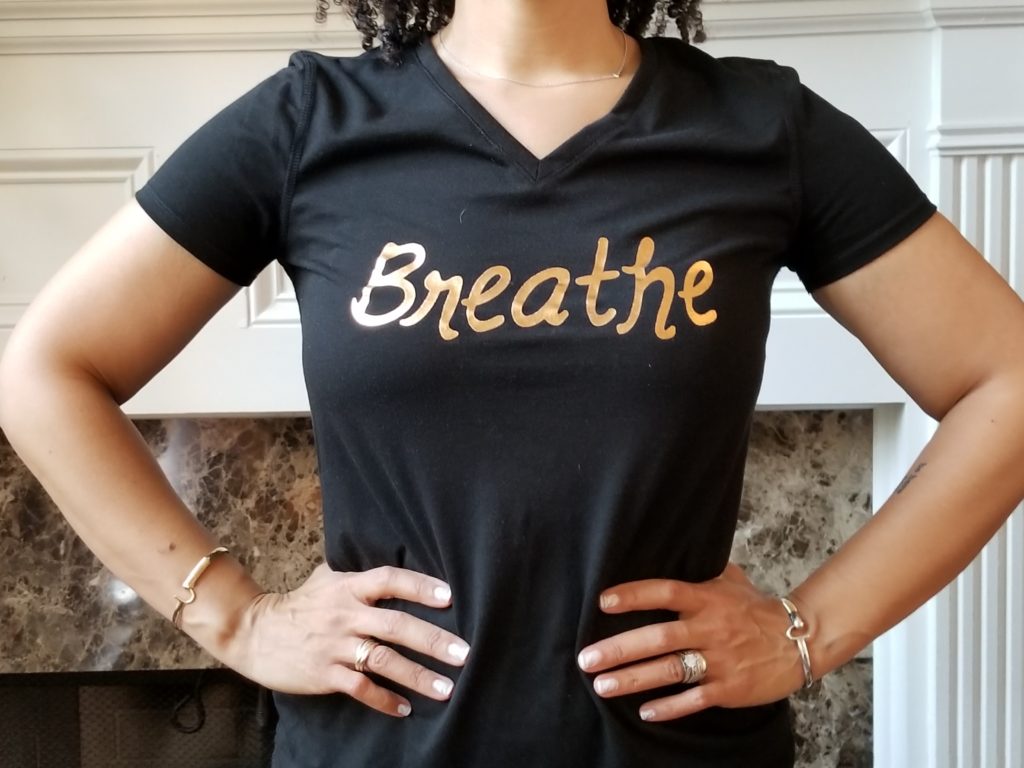
And if you need help with this, you’re not alone! Self-coaching is powerful, but having someone else help coach you can get you moving when you’re stuck in your mind. Let me know in the comments below if you have a situation or thought that you can’t seem to shake and I will help!
For those of you who want to click right over to this week’s video on Weight Loss: Going Deeper, here it is! This is the end of the series and for the next four weeks, I’m talking about how understanding your hormones can help you lose weight. Join me!

